CJC NJC English Language and Linguistics Symposium 2025
By Rachelle Tan and Chin Zhi Xuan (1T05)
“From Breaking News to Viral Views: How the Language of Online Media Shapes our World” - On 25 April 2025, the annual English Language and Linguistics (ELL) Symposium was held at Catholic Junior College (CJC), jointly organised by CJC and National Junior College (NJC). The insightful sharing of the three invited speakers enraptured the three hundred odd attendees, which included enthusiastic and passionate ELL students from five junior colleges, as well as selected secondary school students who were eager to learn more about this subject. The stage was set for Associate Professor Csilla Weninger, Associate Professor at National Institute of Education, as well as Assistant Professor Luke Lu, and to end off, Ms Amanda Chai – a lifestyle journalist at local news company The Straits Times. They enthralled the audience as they shared their breadth of knowledge on the multiple ways in which the language of online media shapes our world.
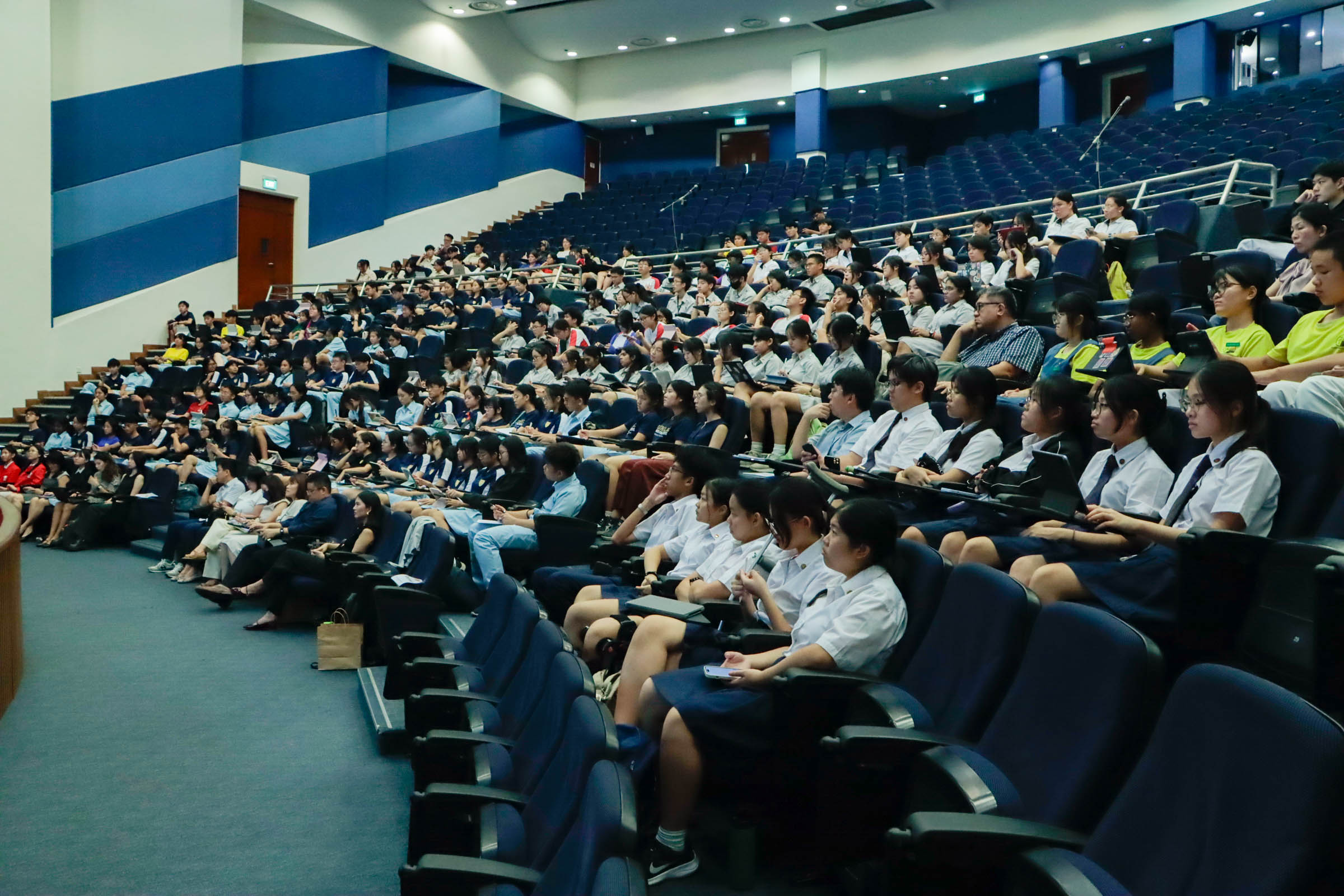
The lectures delved into a wide spectrum of thought-provoking topics, ranging from discerning real versus fake news, to the ‘enregisterment’ of Singlish in the digital realm, and even how to write trendy yet credible articles for mainstream media. Associate Professor Csilla Weninger began by analysing the tell-tale signs of misinformation, contrasting the density and factual integrity of real news with the manipulative intent often found in fake news. She introduced the concept of ‘platformization’, explaining how social media platforms amplify content and encase users in algorithm-driven echo chambers, which reinforce personal biases and fuel the viral spread of misinformation.
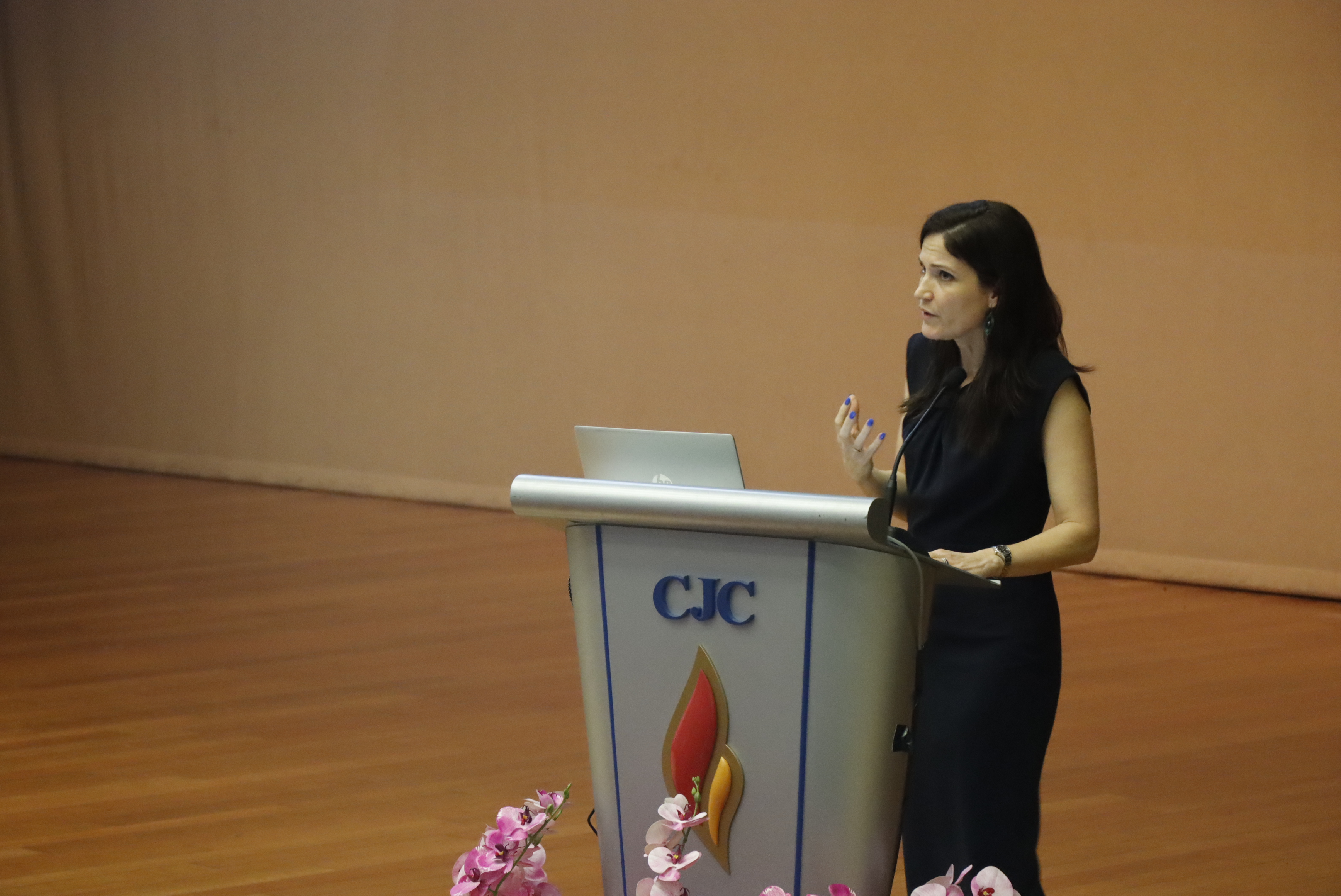
Assistant Professor Luke Lu followed with a deep dive into the digital journey of Singlish, illustrating how words like “kiasu” have adopted fixed spellings while others remain fluid, reflecting the ever-evolving nature of language. He also emphasised how the globalisation of Singlish—now recognised in the Oxford English Dictionary—speaks to the influence of Singapore’s linguistic identity in online spaces.
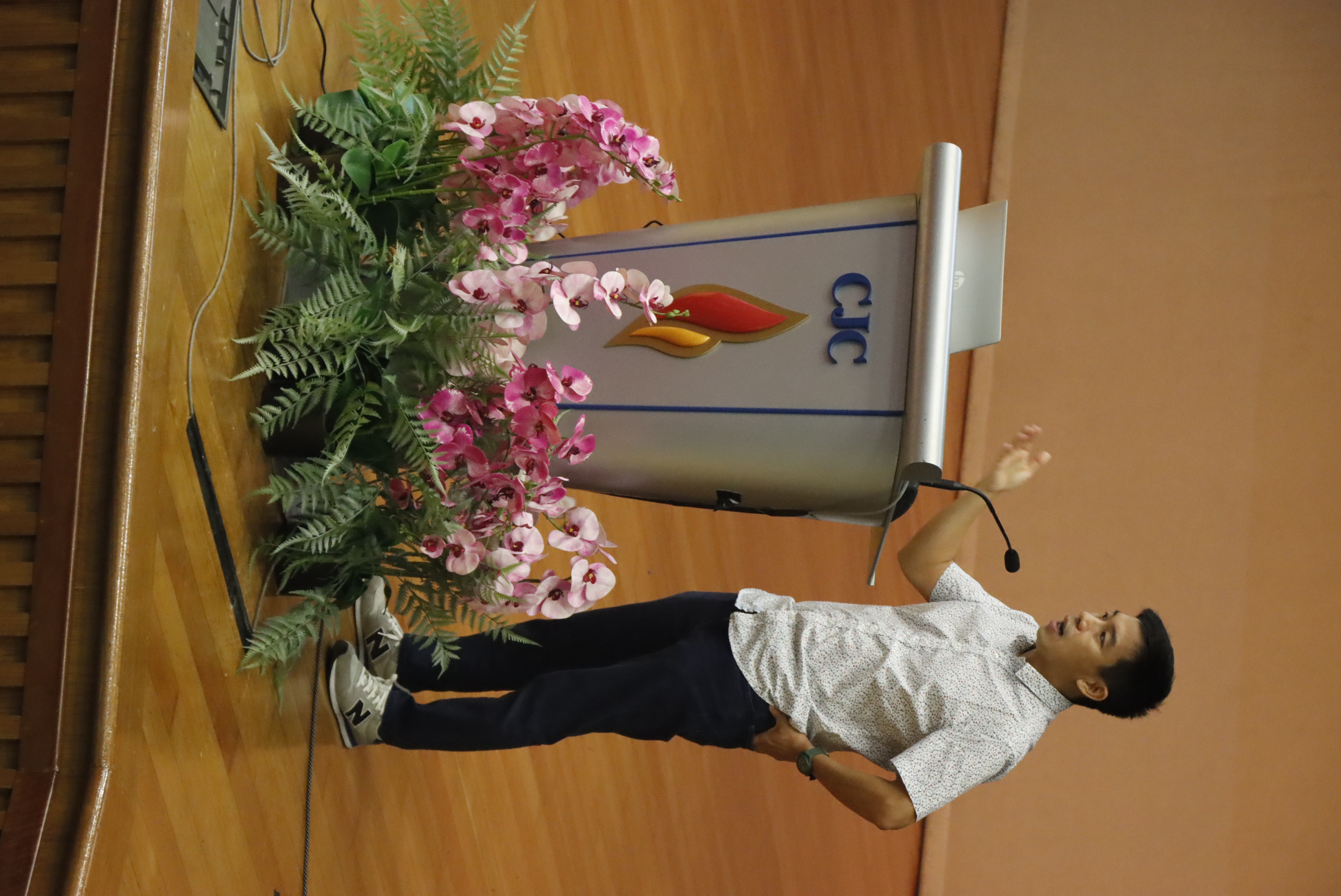
Concluding the lineup was Ms Amanda Chai, a Style Correspondent at The Straits Times, who offered a refreshing, journalistic lens on language. She discussed the importance of balancing conversational tone with authoritative credibility in modern reporting, and addressed the challenges of engaging multi-generational audiences amidst shrinking attention spans. By leveraging platforms like Instagram and TikTok and incorporating multimedia elements, she revealed how traditional media is innovating to remain relevant—reminding students that stories worth telling often begin with even the smallest, overlooked trends.
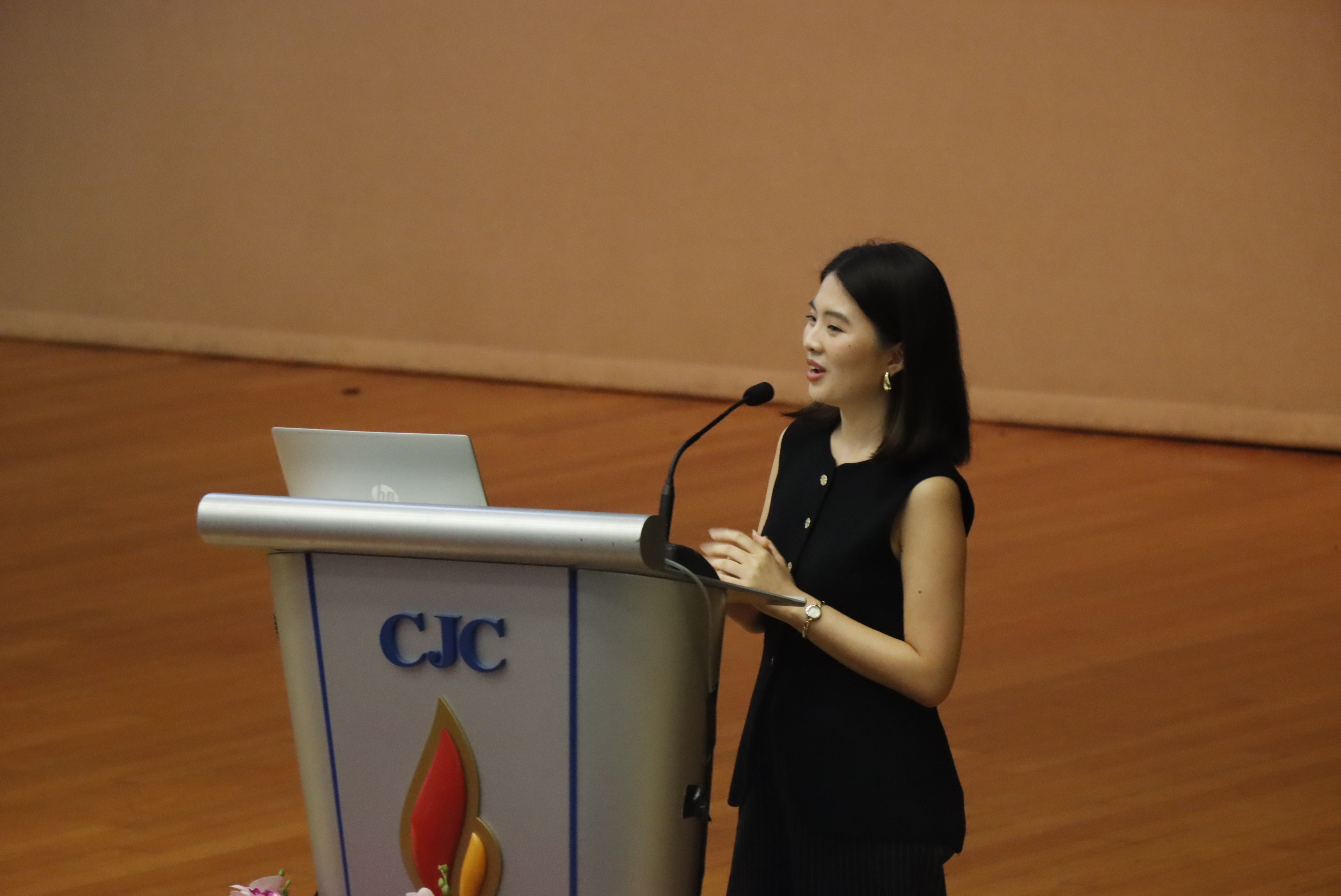
After the enlightening and informative talks, students gathered their questions and directed them at speakers during an engaging Q&A session, in which they bravely stepped forward to clarify their doubts and posed thoughtful and incisive questions, demonstrating not only a keen interest in the subject matter but also a commendable effort to think critically. The Q&A session heralded the end of the 2025 ELL Symposium but the beginning of new learning and insight.
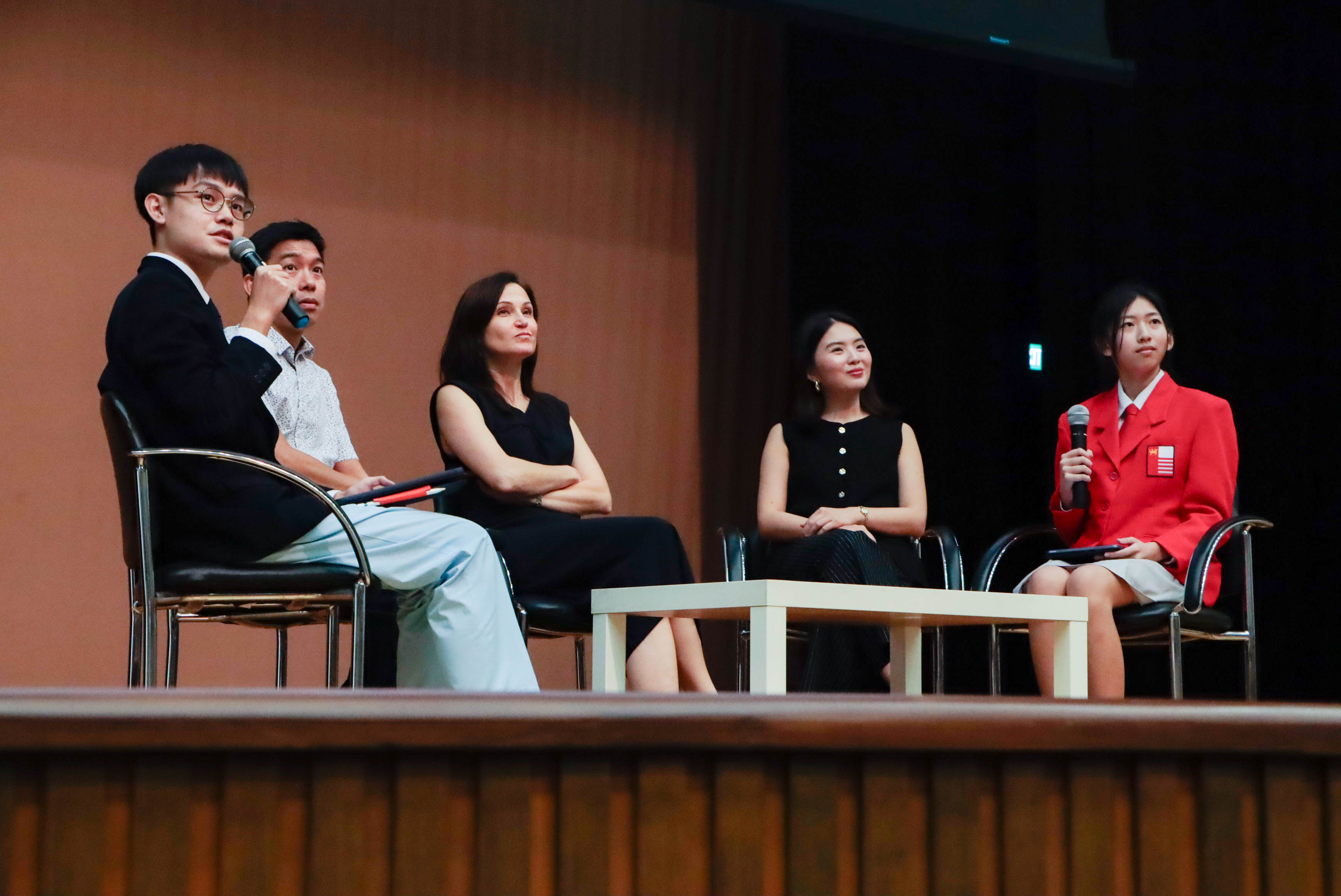
Following the panel discussion, students attended the tea reception, where the atmosphere buzzed with excitement as students from the different institutions mingled freely, united by a shared passion for the English language. This setting offered more than just a feast for the palate—it became a vibrant space for exchanging ideas, reflections, and newfound perspectives sparked by the symposium. It was a moment where budding linguists, aspiring journalists, and language enthusiasts alike found common ground, forming connections that transcended beyond our different schools and backgrounds.
When asked for her experience, Eva Noblezada from ACJC reflected that “I learnt that the digital age has led to language evolving more rapidly and that language use is directly impacted by the new needs and goals of the digital age, such as how monetization on online platforms have led to an increase in tabloid-like misleading stories and headlines in order to generate controversy and attention.”
Isaiah Chua Cheng Xi from CJC reflected “In just three hours, I uncovered three entire universes — one about language online, one about Singlish, and one about how we write ‘news’ … It also fascinated me that the increased use of emphatics and pronouns drives fake news to spread 7 times faster than real news. Such an important point to note in today’s digital age!”
Overall, the symposium undoubtedly expanded our knowledge on the critical role which language plays in online media to shape our world. Students were able to leave with a deeper understanding and appreciation of the English Language.

